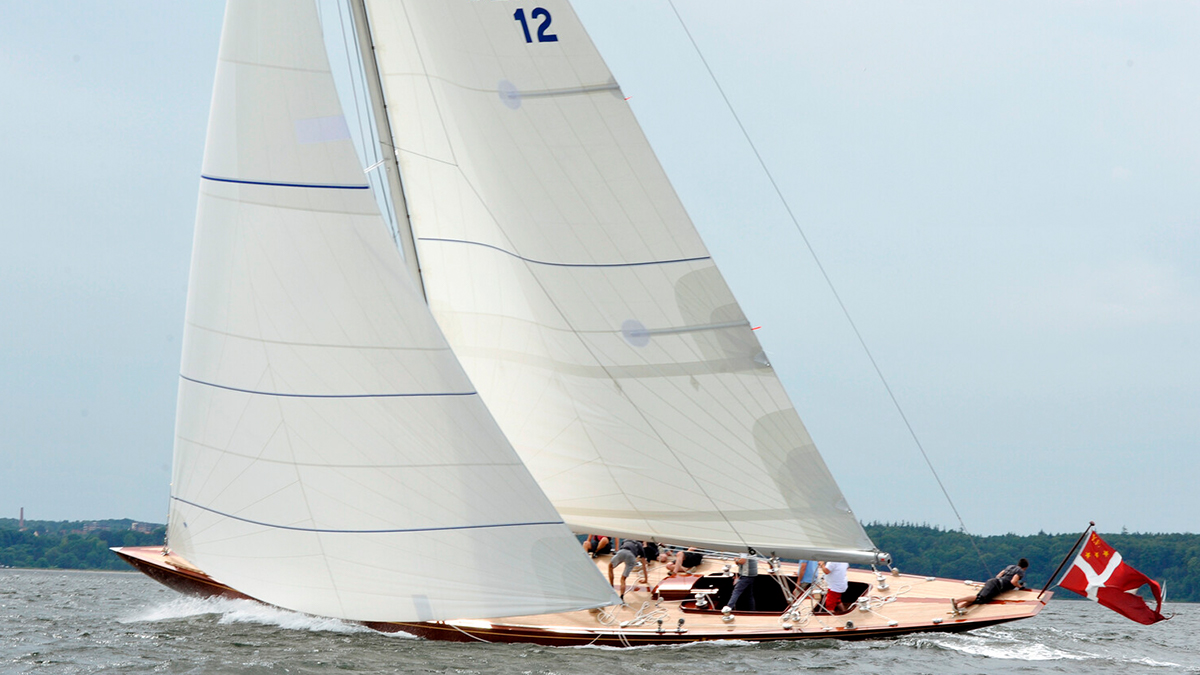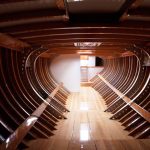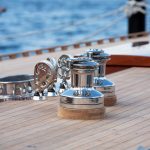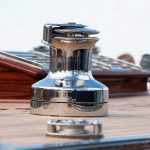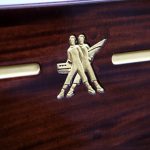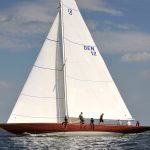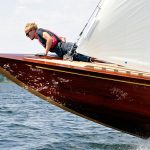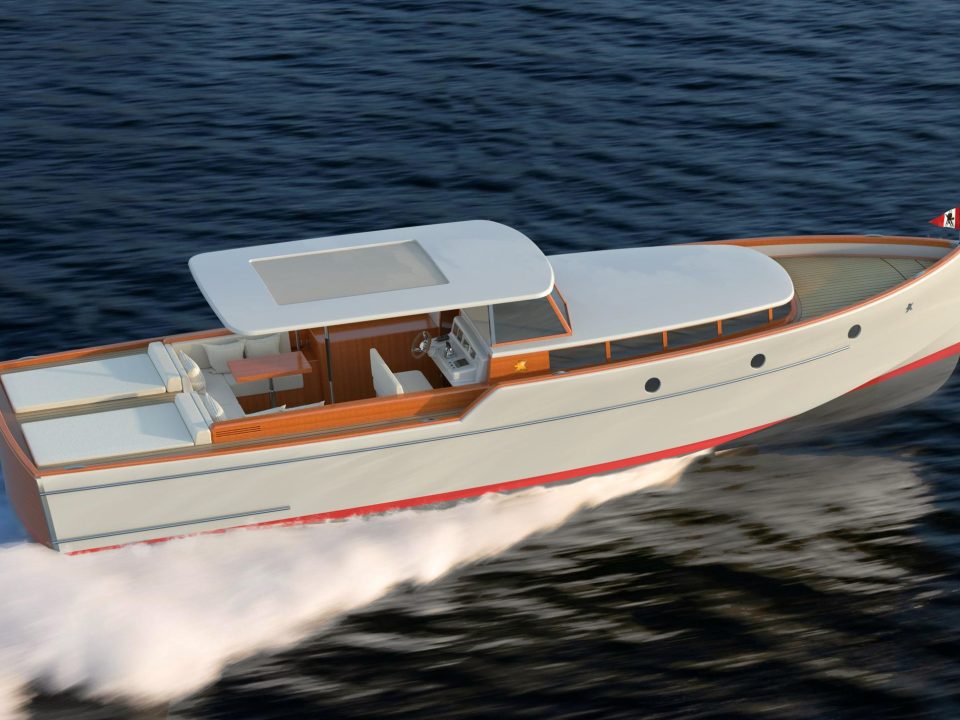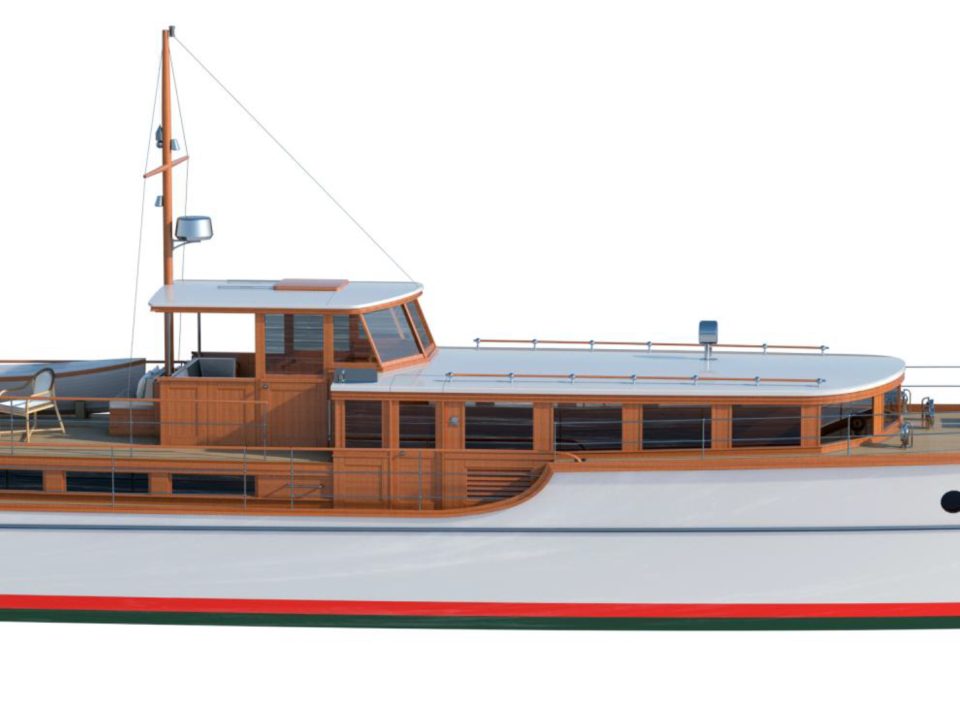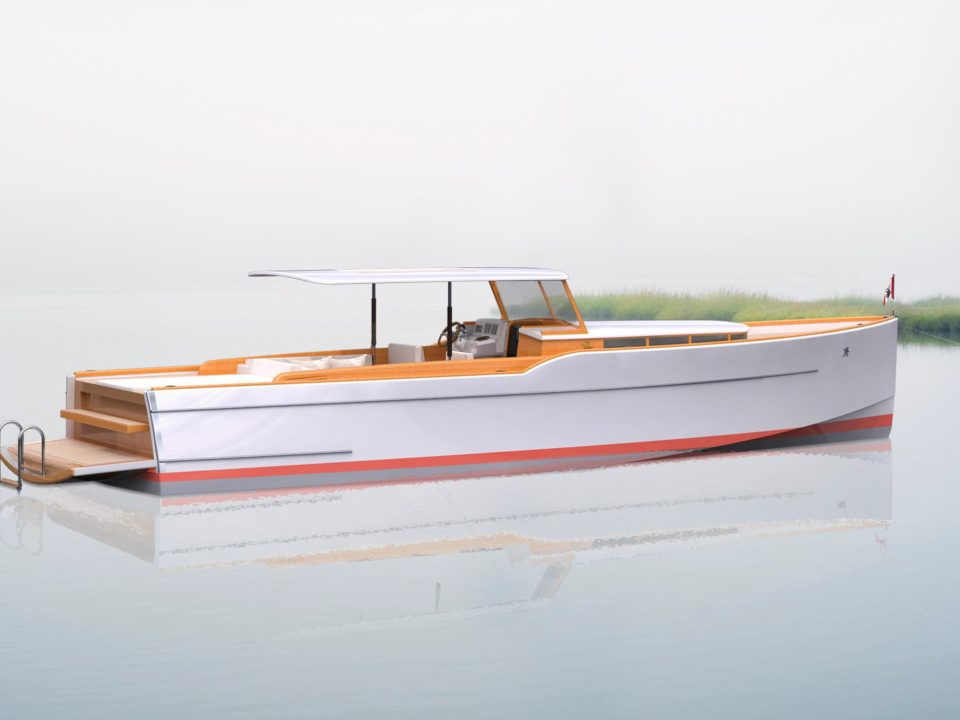Design 434 of the famous Norwegian designer Johan Anker, dating from 1939, his last 12-metre and his second-last design overall
On the one hand, this might be a newly built yacht that came out of the yard’s building shed to be launched into its element, but on the other hand, this yacht looks just as it would have done, would it have been built back in 1939. The mahogany hull was beautifully varnished, with a teak deck and a wooden mast, of course without an engine and only the barest interior: A pure racing yacht from the 1930s. The ribs are made alternately of stainless steel and ash wood. The lead keel alone weighs in at 17 tons. Johan Anker was known as “the master of the lines”. He was very successful as a designer and as an active racing helmsman. His boats, especially his metre-class designs, were recognized as being particularly fast. Design 434 is the last of 20 12-metres that he designed during his career, and all his experience and all his knowledge went into this boat.
This proud yacht will be christened during the “Robbe & Berking 12 Metre Open European Championship”, for which 14 classic 12-metres will come together on the Flensburg Fjord as one of the largest fleets ever in the history of this class.
John Lammerts van Bueren, Juliane Hempel and Robbe & Berking Classics built a new rig for 12 Metre Nini Anker in 2021. It turned out to be a very special one.
Loa
Beam
SA
Specification
| Name: | Nini Anker |
| Design: | Johan Anker Nr. 434 |
| Builder: | Robbe & Berking Classics |
| Year: | 2015 |
| Loa.: | 21.65 m |
| Beam: | 3.60m |
| Draft: | 2.64m |
| SA: | 174m² |
Photo gallery
Pictures of Nini Anker
Johan Anker (1871 - 1940)
In 1911 he sailed his third 12-metre, Rollo, to Cowes to beat the mighty British fleet. The president of the Royal Yacht Squadron commented: » This is what I call sport. They have built their boat, sailed it across the North Sea with their crew, and then won nearly all races here! «
Anker was justly regarded as one of the best helmsmen of his time. As he was accustomed to society due to his own family and upbringing, he soon advanced to become Crown Prince Olav’s sailing advisor. A genuine friendship soon united both, and this close connection with the Royal family brought him respect and business success. He was called “the master of the lines” because, for him, the aesthetics of his yachts was as important as the pure speed. But it worked in his favour that the metre-class rules did produce elegant yachts – true to the old saying: “What looks fine sails fine!”

